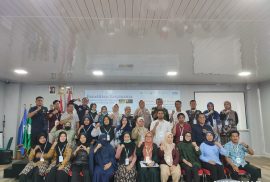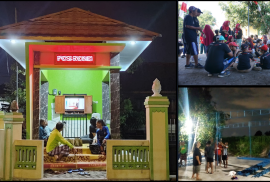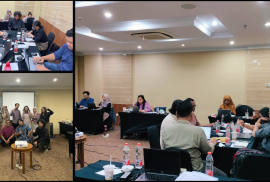Indonesia memiliki letak geografis yang meningkatkan kerentanan terhadap bencana alam, termasuk Kabupaten Mamuju di Sulawesi Barat yang juga masuk pada wilayah dengan resiko tinggi bencana (BNPB, 2O23). Serangkaian gempa yang diingat oleh masyarakat setempat terjadi pada tanggal 15 Januari 2021 dengan kekuatan 6,2 skala richter yang kemudian mengakibatkan kerusakan parah di Kabupaten Majene dan Mamuju.
Prof. Dr. Faturochman, M.A. (ketua peneliti) dan Dr. Wenty Marina Minza, M.A. (anggota peneliti) dari Center for Indigenous & Cultural Psychology (CICP) Fakultas Psikologi UGM melaksanakan penelitian dalam upaya untuk mendukung Sustainable Development Goals (SDG). Penelitian ini dilakukan untuk memenuhi poin SDG kesebelas, yakni membuat perkotaan dan permukiman manusia menjadi inklusif, aman, tangguh, dan berkelanjutan.
(28/10) Pusat Studi Psikologi Indijinus dan Budaya (CICP) menyelenggarakan Workshop Penulisan Publikasi: Konsinyasi 1 Penulisan Manuskrip. Konsinyasi tersebut dilaksanakan selama dua hari (28-29 Oktober 2024) pada pukul 08.00 hingga 17.00 WIB di Hotel Sagan Heritage.
Pada Jum’at (18/10), Pusat Studi Psikologi Indijinus dan Budaya (CICP) menyelenggarakan Angkringan ketiga belas dengan topik “Kesehatan Jiwa Masyarakat: Perspektif Konsumen dan Aksi Komunitas”. Angkringan kali ini dilaksanakan secara hibrida, daring melalui platform Zoom dan tatap muka di Ruang D-506 Fakultas Psikologi Universitas Gadjah Mada. Angkringan yang membahas kesehatan mental masyarakat dengan integrasi budaya dan komunitas ini menghadirkan dua narasumber yang ahli di bidangnya.




